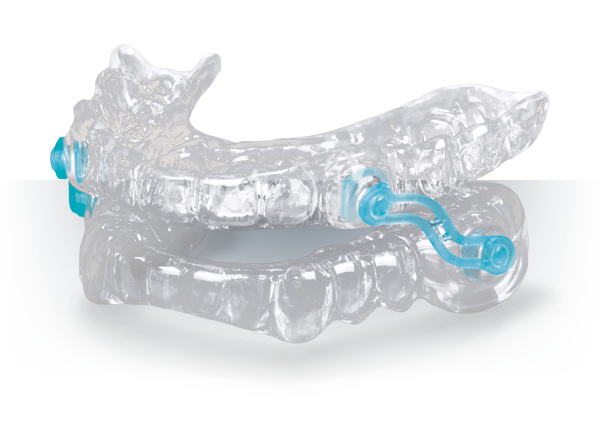
The dangers of snoring
More than 80 million North Americans snore. Taking into account the snorer's spouse and children, as many as 160 million people are negatively affected by snoring. And snoring doesn't merely interrupt your sleep cycle. The struggle for breath can result in soaring blood pressure, which can damage the walls of the carotid arteries and increase the risk of stroke. At certain levels of severity, complete blockage of the airway space by the soft tissues and the tongue can occur. If this period of asphyxiation lasts longer than 10 seconds, it is called Obstructive Sleep Apnea (OSA), a medical condition with serious long-term effects.
What causes snoring?
During sleep, muscles and soft tissues in the throat and mouth relax, shrinking the airway. This increases the velocity of airflow during breathing. As the velocity of required air is increased, soft tissues like the soft palate and uvula vibrate. The vibrations of these tissues result in "noisy breathing" or snoring.
Surgical techniques used to remove respiration-impairing structures have shown only moderate success rates (20 to 40 percent). For the majority of snorers, the most affordable, non-invasive, comfortable and effective snoring solution remains a dentist-prescribed, oral snoring preventative device such as Silent Nite.
How Silent Nite prevents snoring and treats mild to moderate sleep apnea?
Silent Nite is a custom-fabricated dental device that moves the lower jaw into a forward position, increasing space in the airway tube, and thus reducing air velocity and the soft-tissue vibrations that cause snoring. This jaw-forward position also prevents the airway from collapsing, decreasing the likelihood of a sleep apnea event. Special connectors are attached to transparent flexible upper and lower forms. The forms are custom laminated with heat and pressure to the dentist's model of the mouth. The fit is excellent and comfortable, permitting small movements of the jaw (TMJ) and allowing uninhibited oral breathing.